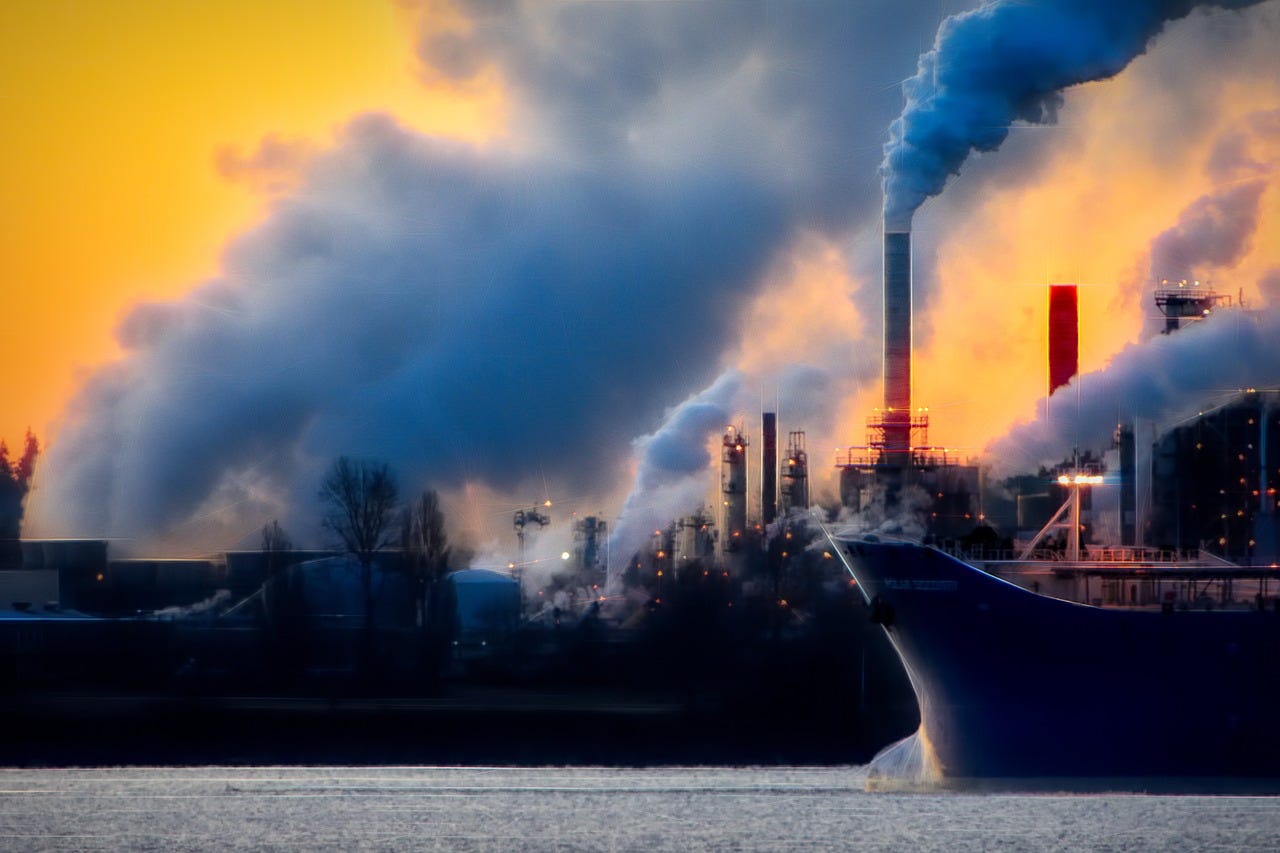How climate change, batting last, will defeat the capitalism that created it
Guest commentary: The systemic destruction of 'growthism'
By Jacques Leslie
(Jacques Leslie is a Los Angeles Times contributing opinion writer and the author of Deep Water: The Epic Struggle Over Dams, Displaced People, and the Environment, winner of the J. Anthony Lukas Work-in-Progress Award for its “elegant, beautiful prose.”)
DATELINE (Callaway Climate Insights) — We’ve heard these stories so often they’ve lost their power to amaze.
Tobacco companies have known since the 1950s that cigarettes cause cancer, but they denied that fact publicly for decades to maximize sales, which still cause more than eight million global deaths a year.
Pharmaceutical companies dismissed studies that their painkillers were addictive while secretly prizing exactly that attribute, from which they profited by the billions of dollars, at a cost of hundreds of thousands of overdose deaths.
And fossil fuel companies have known since the 1970s that carbon emissions from their products are making the world increasingly uninhabitable — a fact their disinformation campaigns still obscure, while trying to expand oil and gas production in an act of global murder-suicide. Indeed, the fossil fuel companies are poised to perpetrate a civilizational homicide whose scale — possibly involving billions of people — easily dwarfs the achievements of the retail slaughterers of the 20th century such as Hitler, Stalin, Mao, and Pol Pot.
Companies so often act in socially and environmentally destructive ways that it’s obvious that the problem isn’t “a few bad apples” — it’s systemic. In a way, it’s not surprising that they behave so egregiously — they are rewarded for only one thing, and that’s profit. Metrics revolving around profit — revenue, overhead, taxes, and so on— are circulated around the financial world in a never-ending stream. Social and environmental costs, which are “external,” customarily don’t even get assigned numbers.
In fact, capitalism has turned humans into walking cash registers, whose brains are constantly making calculations and decisions based on what the things around them cost — I suspect contemporary humans do this with the same intensity that earlier societies dedicated to religion or nature. Oscar Wilde’s comment that cynics “know the price of everything and the value of nothing” now applies to almost all of us. It’s an appalling way to live, and the climate crisis shows that it doesn’t work. If humans are to have a chance of surviving in the face of increasingly menacing environmental threats, capitalism must change. Companies must be required to pursue environmental benefits with at least as much seriousness as they devote to profit.
These thoughts have been inspired in part by a book I recently read, “Less Is More: How Degrowth Will Save the World” by Jason Hickel (2020). I’m wary of glib pronouncements of solutions to our most profound societal problems, and I approached the book with caution. Yet I found myself agreeing with most of its assertions; in fact, it has influenced my thinking as much as any other book I’ve read in years. (I’m still uneasy with the subtitle, particularly because Hickel doesn’t address the daunting political obstacles that stand in the way of his solutions.)
Since reading the book, I’ve been noticing the jaw-dropping number of news stories I read that reflexively assume that increasing gross domestic product (GDP), the metric of growth, is good, and lowering GDP is bad — politicians, journalists, moguls all take for granted the meaningfulness of the number.
Yet even the man who devised GDP, a Nobel-Prize-winning economist named SimonKuznets, wrote in a 1934 report that “the welfare of a nation can… scarcely be inferred from” GDP. For one thing, like Wilde’s cynics, it doesn’t consider the value of the economic activity it measures: it makes no distinction between, say, education and assault rifles. It also doesn’t measure the ecological and social costs of economic activity — by its terms, megafires are positive because they generate rebuilding. Nor does it include activities that don’t involve monetary exchange, such as much housework and childcare. Hickel rightly calls GDP “an indicator of the welfare of capitalism,” not the welfare of human beings.
Yet more than Americans embrace any particular religion, we believe in what Hickel calls “growthism” — the idea that two or three or five percent annual economic growth forever into the future is a worthy goal. It’s actually preposterous; everything else around us, from microorganisms to civilizations, either stops growing when it reaches maturity or collapses.
In our obsession with growth, we’ve gutted labor unions, watered down environmental protections, privatized public assets, and scavenged other countries for their natural resources and cheap labor. But growth for its own sake must inevitably break down, in part because the planet can’t generate the resources the increasingly ravenous economic machine consumes.
Hickel cites statistics showing that with the emergence of growthism, global annual raw material consumption — the weight of everything we take from the earth, from biomass to minerals to construction materials — has exploded, from about 10 billion tons per year in 1932 to more than 90 billions tons in 2016. Scientists consider 50 billion tons per year the earth’s maximum sustainable threshold, Hickel says.
Climate change has laid bare the illusions of capitalism, such as that humans are distinct from nature, and that we can blithely treat nature chiefly as a source of resources. It turns out that nature really does bat last, and climate change is its cleanup hitter. Our uncritical acceptance of growthism is fundamentally, tragically, horrifyingly out of balance with our surroundings — it is taking humans (and billions of other species) down an evolutionary dead end. To turn around, we must figure out what we truly value and jettison the rest.
Follow us . . . .

